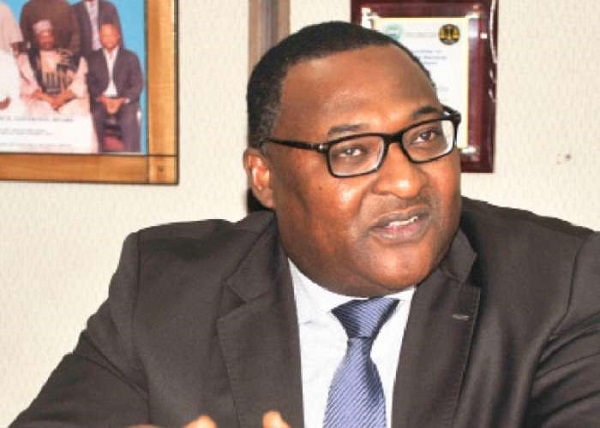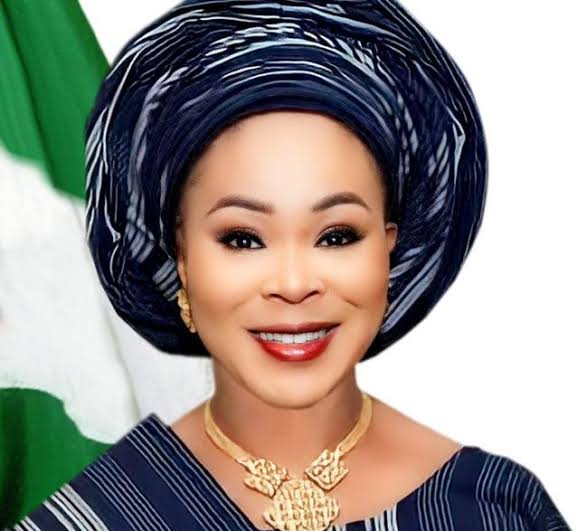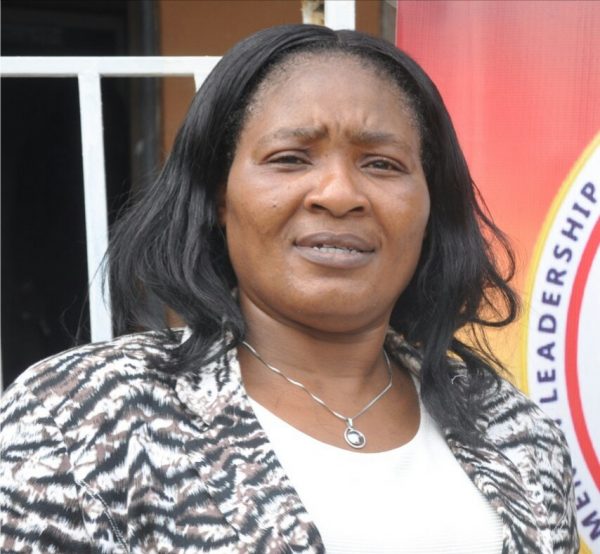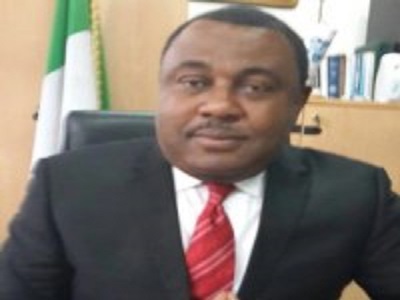Freight Forwarders Deserve COVID-19 Fiscal Palliatives – Nwabunike
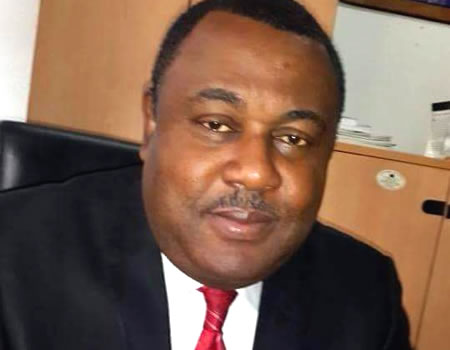
By Kenneth Jukpor
Mr. Tony Iju Nwabunike is the President of the Association of Nigeria Licensed Customs Agents (ANLCA). In this exclusive interview with MMS Plus newspaper, he gives an analysis of the nation’s economy with emphasis on the port sector and cargo evacuation. Read on!
Nigeria’s economy is tilting towards a recession amid the numerous fiscal challenges further complicated by the COVID-19 pandemic. As a freight forwarder, what’s your view on the nation’s economy for the remaining months in 2020?
The federal government of Nigeria is in a very precarious situation with regards to managing the nation’s economy. When you look at the effect of the COVID-19 pandemic across the globe, you would realize that most nations are grappling to find solutions for the economy. Every nation’s economy has been affected by the pandemic but the effect has been felt more on third world economies because there aren’t clear strategies for growth. The NBS statistics showed that most sectors of the economy are in negatives including crucial aspects such as oil and gas, transport, among others.
This development gives us a lot to worry about. However, recent events such as increase in electricity tariffs and hike in Premium Motor Spirit (PMS) would further worsen the standard of living of Nigerians and consequently the economy. This is a time when the government should be focused on providing palliatives for the citizens and not exploring strategies to increase taxes.
It is unfortunate that the revenue sources the government hurriedly turn to, has also been grossly affected by the pandemic, especially the crude oil. Other aspects of non-oil export such as agriculture have dwindled and imports have also been limited. So, the targets given to institutions like Nigeria Customs Service (NCS), Federal Inland Revenue Service (FIRS), among others would be significantly reduced.
Nevertheless, I can’t say that this means there would be a recession as posited by most economic experts.
There have been provisions for COVID-19 palliatives for the aviation sector and the Ministry of Transportation also recently disclosed the N10billion intervention fund for the sector; but there is no provision for freight forwarders who risked their lives to keep the ports operational during the lockdown. What’s your view on this?
It is really unfortunate that the Federal Government hasn’t been fair to freight forwarders. We were considered as essential workers amid the toughest times of the COVID-19 pandemic. As professionals, I can tell you that we recorded the highest amount of deaths through that period. Freight forwarders were exposed during that period but we resolved to help the country to ensure essential items like medical equipments, petroleum products were cleared from the ports.
We find it shocking that other sectors get palliatives but the Federal Government didn’t make such arrangements for freight agents. If aviation and other transport sectors could get palliatives, what stops freight forwarders from enjoying such privilege?
It is also important to stress that we are the real revenue generators because if we don’t pay duties Customs wouldn’t have revenue for the government. As practitioners, we put in our best to come and encourage our colleagues to do the same amid the lockdown. Some members believed that the leadership of freight forwarding groups was compromised because we asked them to come out to keep the ports operational. Some of our members were harassed; others were brutalized by the Police and other security agents during the lockdown period. I wonder why the government would let these sacrifices go by without any incentives or palliatives.
Recently, the biggest vessel to call at a Nigerian port visited Onne seaport. What does this development mean for the eastern ports and freight forwarding business in that region?
When that vessel came in, I was so excited. I was excited in two areas, one is that it made me believe that the draft of the port can carry such a vessel despite the fact it came to collect empty containers and not to drop any cargo. What this means is that if a vessel of 10,000 twenty-foot equivalent units (TEUs) can come into Nigerian waterways via the East, we have this great hope that Nigeria Ports Authority (NPA) can get such vessels to drop cargoes there. I would also suggest that such vessels should come to Lagos to evacuate empty containers littering all over the streets. Look at the ports areas, everywhere is littered with empty containers.
The shipping companies responsible for these containers should make use of such opportunities to bring vessels to evacuate upto 10,000 containers from Lagos. This will bring relief to the port environment and the entire Lagos State.
The Central Bank of Nigeria (CBN) has come up with restrictions on forex payments to third parties. What is your opinion on this development?
When I consulted some of the officials at CBN, I was told that it was just to checkmate the inflow and outflow of foreign currency. People think that using the third party agreement will lead to capital flight but I think that should not be the reason they brought about the third party restriction. There are several ways to checkmate capital flight and third party forex dealings without necessarily placing that restriction.
Nevertheless, the apex bank should have notified importers and exporters about the plan to introduce this restriction and given them time to prepare for it. There should have been at least six months notice and not an immediate restriction. Instead of stopping an existing Form M or third party agreement which is a policy that has been allowed, there should have been prior notice. Now, anybody using a third party to get consignments imported is on an illegitimate process.
It is important to note that the customers are still struggling with the effects of the pandemic. Since March some of them have not opened Form M, while some imported consignments are still on the high seas. Looking at all these, I don’t think they are doing the right thing and I am appealing to them to have a rethink. More so, there are other ways to check capital flight and not just the Form M arrangement.
As ANLCA President, your engagement strategy with regulators like the Customs and Standards Organization of Nigeria (SON) and other agencies is targeted at creating mutual understanding. However, there has been backlash from ANLCA members on your strategy. Would you change your approach?
Let me say this, I discovered that in any war; we have two strategies. The first is; strategy of negotiation, reconciliation and dialogue and the other is war. I always want us to exhaust all the available avenues of dialogue to see from both points of view. This way achieves some level of understanding but in a situation where you have not sat down with these agencies that are coming with a mandate from the government on the things that we should do and not do.
If you get an importer that does not follow guidelines from these agencies and you go ahead assuring such importer that you can take such a container to the warehouse without going through the right procedure; that is wrong. You begin to go to war with the government agencies thinking it will subdue them and break protocols thinking you will take such a container to the warehouse, I don’t think that is a good procedure.
The system is that you sit down with your client and explain the procedures of importation and adhere strictly to it. If for any reason the documentation is not correct, go to the appropriate agency and ask if there is any way you can get a soft landing on the issue that will not destroy your integrity.
I don’t want to be an agent for an importer agent who does not want to do the right thing. We should start educating these importers on doing the right thing. For example, government agencies after due process could insist on not letting go of consignments without bribes. At such point, as ANLCA President I will come out like a lion to resist such intimidation or oppression on any freight agent. My doctrine is do things right and defend it uprightly.
A recent court judgment stated that the existing ANLCA leadership is not recognized because the Board of Trustees (BOT) which presided over the election wasn’t registered at the time. How’s ANLCA dealing with this?
Well, it is not a court judgment but a court hearing. The only court judgment we have is the one given by Lagos Federal High court restraining all those who are still parading themselves as the BoT members. The judgment of the High Court can only be overturned by a superior court called Appeal Court and if that is the case, I remember in February 2014, I was one of the nine elected members of the board. I was with the board until 2018 when I contested to be president and that was when I left the board.
I was a member of the board for four years but the six year tenure of the board expired in February 2020.
However, the one you refer to could be the case of Olumide Fakolu and Francis Nwaparocha, that took almost everybody to court that this association has stopped existing since 2010. If that is the case, two things happened here. Firstly, it is not a judgment but hearing from the court which our lawyers will go and tackle out.
It might interest you to know that we have gone through our daily registration of membership and found out that Olumide Fakolu and John Nwaparocha do not exist. We, however, have Gideon Nwaparocha on the ANLCA register. Two of them are not financial up to date members of the association since I became the president. Since I became President, their names haven’t been in the register at the national headquarters. I think they have no locus standi to take the association to court because they don’t belong to the association.
Several months after the launch of Practitioners Operating Fees (POF) was done the programme is yet to take off. What has been the limiting factor?
POF is solely in the hands of the Council for the Regulation of Freight Forwarding in Nigeria (CRFFN). I must give respect to other sister associations who have actually made an effort to come together to take a decision on the issue of POF implementation. I agree with CRFFN on the issue and sympathize with them because if they cannot raise this money, it might be very difficult for them to operate.
The good news is that top associations are eager to listen to them to fashion a way out to get the POF working. I would be glad if they succeed in doing that. I learnt they have had a CRFFN board meeting today. Probably they came up with a strategy to get it working. We want them to know that while we are waiting for them to develop the framework, they should be keen to sit down with practitioners to ask where there should be changes so that we can move forward with POF.



